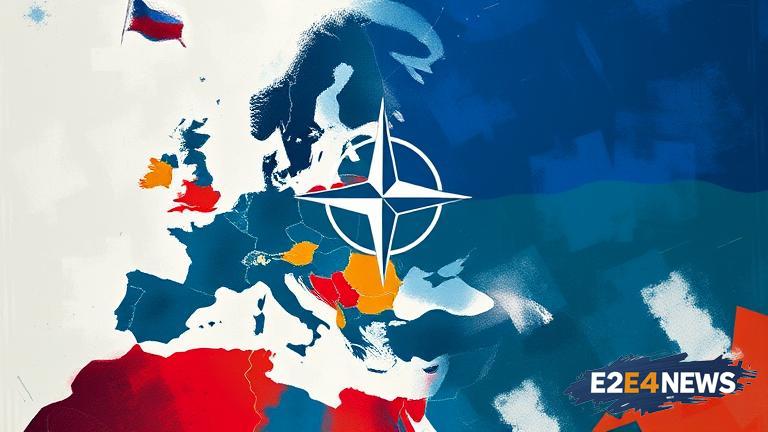The ongoing conflict between Russia and Ukraine has had a profound impact on global politics, particularly with regards to the North Atlantic Treaty Organization (NATO). Despite Vladimir Putin’s initial intentions to weaken the alliance, his actions have ultimately led to a strengthening of NATO’s resolve and unity. The Russian president’s aggressive behavior has prompted a significant increase in military spending among NATO member states, with many countries committing to meet the alliance’s defense spending targets. This surge in military expenditure has enabled NATO to enhance its capabilities and improve its readiness to respond to potential threats. Furthermore, the conflict has led to a renewed sense of purpose and cooperation among NATO member states, with many countries working together to provide support to Ukraine and counter Russian aggression. The alliance has also seen an increase in membership, with several countries expressing interest in joining NATO in the wake of the conflict. This expansion has further strengthened NATO’s position and influence in the region. In addition, the conflict has highlighted the importance of NATO’s role in maintaining regional stability and security. The alliance has played a crucial role in providing support to Ukraine, including the provision of military aid and training. NATO has also worked to strengthen its partnerships with other countries in the region, including Georgia and Moldova. The conflict has also led to a significant increase in diplomatic efforts, with many countries working together to find a peaceful resolution to the conflict. Despite these efforts, the conflict remains ongoing, with both sides suffering significant losses. The humanitarian impact of the conflict has been devastating, with thousands of civilians caught in the crossfire. The conflict has also had a significant impact on the global economy, with trade and investment between Russia and the West severely impacted. In response to the conflict, many countries have imposed economic sanctions on Russia, which have had a significant impact on the country’s economy. The conflict has also led to a significant increase in cyber attacks and disinformation campaigns, with both sides accusing each other of engaging in these activities. Despite these challenges, NATO remains committed to its mission of maintaining regional stability and security. The alliance continues to work closely with its partners to provide support to Ukraine and counter Russian aggression. In the long term, the conflict is likely to have a lasting impact on the global security landscape, with many countries re-evaluating their relationships with Russia and their commitment to NATO. The conflict has also highlighted the importance of diplomacy and dialogue in resolving conflicts, with many countries calling for a peaceful resolution to the conflict. Overall, the conflict between Russia and Ukraine has had a profound impact on NATO, leading to a strengthening of the alliance and a renewed sense of purpose and cooperation among its member states. As the conflict continues to unfold, it is likely that NATO will remain a key player in efforts to maintain regional stability and security. The alliance’s commitment to its mission and its partnerships with other countries will be crucial in the months and years ahead. In conclusion, the conflict between Russia and Ukraine has been a significant turning point for NATO, highlighting the importance of the alliance in maintaining regional stability and security. The conflict has also demonstrated the resilience and adaptability of the alliance, with NATO member states working together to respond to the challenges posed by Russian aggression. As the global security landscape continues to evolve, it is likely that NATO will remain a key player in efforts to maintain peace and stability.





